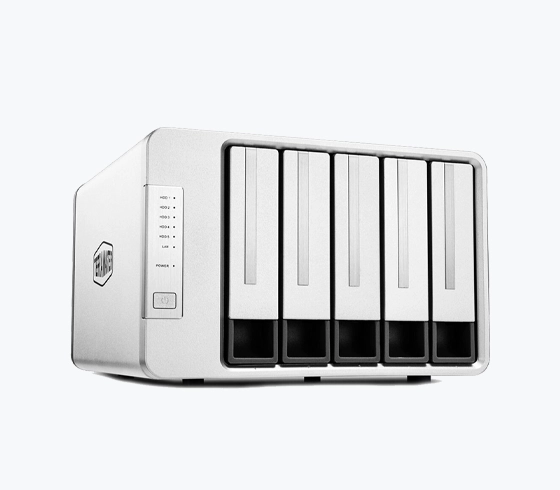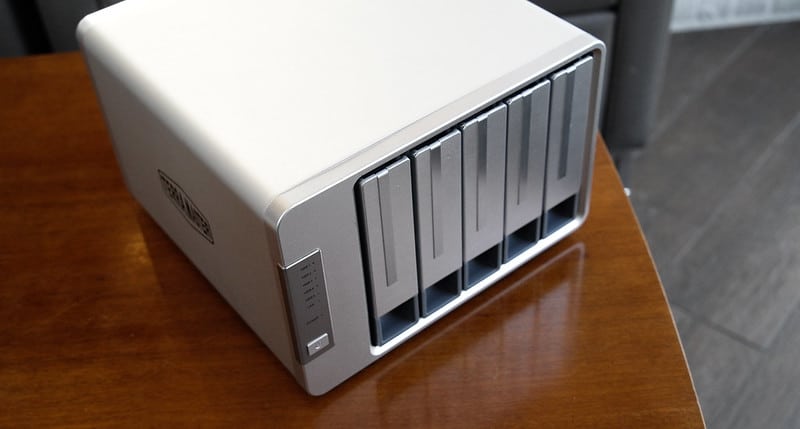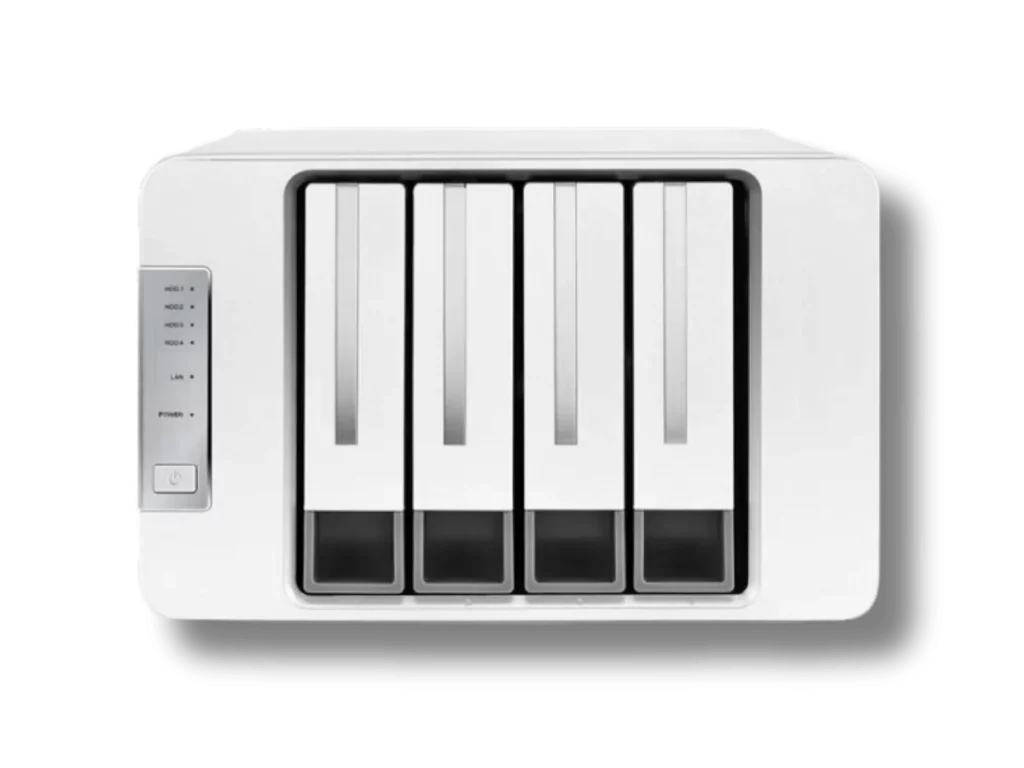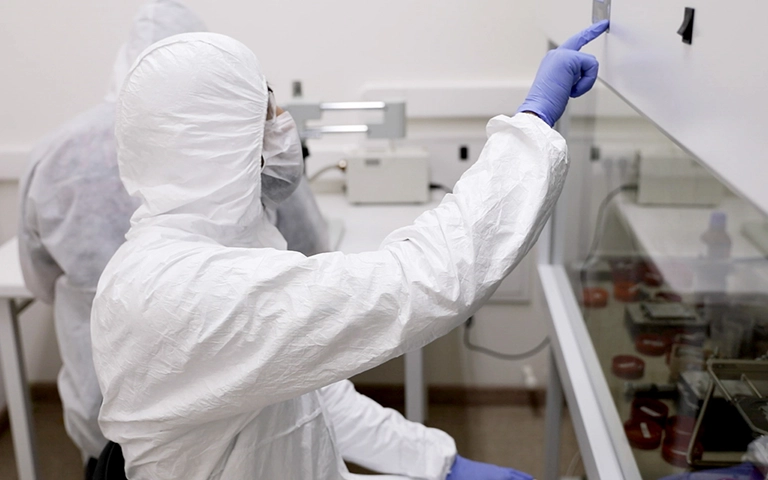NAS devices such as the TerraMaster F4-210 are a popular choice for small businesses and advanced home users seeking centralised file storage and media sharing.
Although cost-effective and versatile, their reliability depends heavily on both stable hardware and a correctly configured RAID setup.
In this case, a client suffered a severe data loss incident when their TerraMaster F4-210 NAS failed unexpectedly. The RAID 5 array became inaccessible, placing years of valuable project data at immediate risk.

Case Background: What Happened?
The client was using a TerraMaster F4-210, a 4-bay NAS powered by a quad-core ARM processor, configured with four 4TB drives in a RAID 5 setup.
This configuration provided single-drive redundancy and was used to store:
Business documents
Multimedia project files
Client archives
Family photos and videos
One morning, the NAS became unresponsive during boot. After a manual restart, the system interface failed to load, and none of the shared folders were accessible across the network.
The client attempted basic troubleshooting, including:
Restarting the NAS
Checking drive status via TerraMaster TOS
Swapping network cables and ports
Despite these efforts, the volume would not mount. The TerraMaster admin panel first reported “RAID degraded” and then escalated to “Volume not found.”
At this stage, the client contacted RAID Recovery Services for professional support.
For more information on how we approach similar failures, see our TerraMaster data recovery capabilities.
Initial Evaluation: Drive Status and RAID Integrity
After receiving all four drives along with exported system logs, our engineers carried out a full hardware and integrity assessment.
Key findings were:
One drive had completely failed with multiple unreadable sectors and mechanical wear
A second drive showed early signs of failure, with an increasing reallocated sector count
The remaining two drives were healthy
No recent backups existed outside of the RAID array
Further analysis revealed that the TerraMaster operating system had attempted an automatic rebuild when the first drive failed. However, the second degraded drive caused the rebuild to collapse, leading to corrupted parity and damaged metadata within the array.

Challenges in Recovering TerraMaster RAID 5 Arrays
TerraMaster NAS devices rely on mdadm-based software RAID within a Linux environment, typically layered with ext4 or Btrfs file systems.
When rebuilds fail or drives fall out of sync, RAID 5 arrays can encounter serious complications, including:
Fragmented stripe alignment
Missing or misaligned parity blocks
File system corruption
These issues are not unique to TerraMaster but are common across many RAID 5 setups, making RAID 5 data recovery one of the most technically demanding services our engineers handle.
Adding to the complexity, the TerraMaster F4-210 operates on an ARM-based CPU. As a result, standard x86 Linux recovery utilities must be carefully adapted to interpret and emulate the original RAID configuration.
Fast turnaround times for business-critical data
Recovery Process: Step by Step
All four drives were cloned sector by sector using hardware write blockers. This safeguarded the originals and prevented further degradation during analysis.
Working with the disk images, our engineers determined the correct RAID order, stripe size, and layout. The RAID 5 array was then virtually rebuilt using bespoke tools designed to correct parity inconsistencies introduced by the failed auto-rebuild attempt.
The underlying ext4 file system had sustained severe corruption. Our team repaired damaged superblocks and inode tables, restoring directory access and reconstructing the original folder hierarchy.
The recovery yielded a wide range of critical files, including:
Adobe Photoshop and Illustrator project files
Extensive 4K video archives
Business tax and financial records
Personal photo and music libraries
In total, more than 97% of the original data was successfully restored.

Quality Control and Final Delivery
After completing the extraction, our team carried out thorough quality assurance measures:
Validated file integrity using cryptographic hash checks
Manually tested key files to confirm usability and stability
Compiled a detailed recovery report for the client
A remote verification session was then conducted, allowing the client to review the folder structure and confirm the presence of all critical files.
The recovered data was securely transferred onto a new 8TB external drive, encrypted for protection, and dispatched with full shipment tracking.
Summary of the Recovery
Device: TerraMaster F4-210
RAID Type: RAID 5 (4 x 4TB drives)
Issue: One failed drive, one degraded drive; failed rebuild attempt corrupted volume
Data Recovery Success: 97.3% of data restored
Turnaround Time: 4 business days (priority service)

Best Practices for TerraMaster Users
To reduce the risk of future failures:
Configure dual-disk redundancy (RAID 6 or RAID 10) where possible
Avoid automatic rebuilds unless drive health has been verified
Back up critical data regularly to external USB devices or the cloud
Replace drives immediately when SMART warnings appear, especially if bad sectors are increasing
Use an uninterruptible power supply (UPS) to protect against sudden shutdowns that may corrupt parity or file system data
Attempting an improper or premature rebuild can result in complete data loss.
Trust the experts with proven results
Need Help with Your TerraMaster RAID Recovery?
If your TerraMaster NAS has failed or become inaccessible due to drive issues or a software-level crash, avoid attempting a DIY rebuild.
Contact RAID Recovery Services for a no-obligation evaluation. Our team has extensive experience with TerraMaster RAID arrays, Linux mdadm environments, and complex file system repair.
Our ISO-certified labs are equipped to handle even the most severe NAS failures, and we provide comprehensive NAS data recovery services across all major brands and failure scenarios.